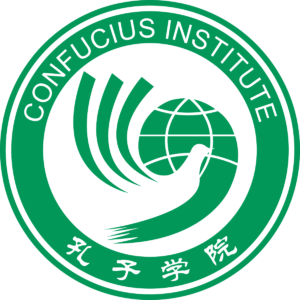With the latest report of China’s attempts to mislead the world about COVID-19 by hiding data that could have helped fight the pandemic, the Communist regime is again reminding the world why it cannot be trusted.
It’s also a reminder of how problematic it is that the University of New Hampshire is currently hosting an organization funded by the Chinese Community Party, one designed to spread propaganda, and which is under investigation by the FBI. Even more concerning, UNH recently renewed the organization’s contract for on-campus operations, despite knowing these facts.
It’s called the “Confucius Institute.”
“The Confucius Institute is an appealing brand for expanding our culture abroad,” Li Changchun, a standing member of the Politburo in Beijing, said in 2011. “It has made an important contribution toward improving our soft power. The ‘Confucius’ brand has a natural attractiveness. Using the excuse of teaching Chinese language, everything looks reasonable and logical.”
Li is apparently right about the brand’s “appeal.” Since launching more than 15 years ago, dozens of Confucius Institutes have set up shop at American universities. Under these arrangements, a division within the Chinese Ministry of Education selects and buys the textbooks; hires, trains and oversees the teachers; and even chips in operating funds. Talk about “outsourcing to China!”
Less appealing is the fact that Confucius Institutes are thinly disguised propaganda machines. In addition to basic Chinese language, Confucius Institutes also offer lessons in Chinese history and culture. “Slanted” would be a generous way to describe these lessons. Confucius Institute teachers toe the Communist Party line on Tibet, Tiananmen Square and Taiwan. That’s because they are explicitly ordered to do so.
A decade ago, the Chinese minister of propaganda (yes, that’s his actual job title) exhorted his compatriots to: “Coordinate the efforts of overseas and domestic propaganda, [and] further create a favorable international environment for us… with regard to key issues that influence our sovereignty and safety, we should actively carry out international propaganda battles against issuers such as Tibet, Xinjiang, Taiwan, human rights and Falun Gong.”
How?
“We should do well in establishing and operating overseas cultural centers and Confucius Institutes,” he wrote.
Even when they’re not brainwashing American students, Confucius Institutes exert pressure on the campuses in which they are housed. North Carolina State University canceled a planned visit by the Dalai Lama allegedly because — in the words of that school’s Confucius Institute director — such a visit would hurt the “strong relationships we were developing with China.”
It’s little wonder that in August the State Department designated the Confucius Institutes a foreign mission representing China, noting, for one thing, that “approval from an institution affiliated with the PRC’s [People’s Republic of China’s] Ministry of Education is generally required when filling teaching positions associated with Confucius Classrooms” — a pretty blatant violation of academic freedom.
New Hampshire Commissioner of Education Frank Edelblut released a letter from the federal Department of Justice and Department of Education warning of the Confucius Institutes’ problematic connections to the Chinese Communist regime:
“More concerning is that some American schools, and thus taxpayers, are supporting parts of these programs, and the PRC is spending considerable sums to woo U.S. school leaders,” the statement read. “A review by the State Department’s Bureau of Educational and Cultural Affairs found that approval from an institution affiliated with the PRC’s Ministry of Education is generally required when filling teaching positions associated with Confucius Classrooms. This practice by the PRC does not necessarily align with our values or support the safe, equitable, and positive learning environment U.S. students deserve.”
Edelblut added his own warning: “New Hampshire schools have control over their own curriculum, and we trust local school boards to make the best decisions for their communities. To do so, they need the best information possible, and this alert gives local officials good reason to be cautious in using Confucius Classroom materials in their schools.”
And the Trump Department of Justice opened an investigation into the program in 2018, with FBI Director Christopher Wray telling a Senate hearing: “We do share concerns about the Confucius Institutes. We’ve been watching that development for a while.
“It’s one of many tools that [the Chinese] take advantage of,” Wray added.
It’s unclear if the incoming Biden administration will take the same adversarial approach. In addition to his public statements suggesting a near-virtual reversal of Trump’s foreign policy, one of Biden’s top education advisers is openly pro-China.
Linda Darling-Hammond, a Stanford University professor and the president of the California State Board of Education, is the author of the book Empowered Educators: How High-Performing Systems Shape Teaching Quality Around the World, which praises China’s education policy.
Neither the Confucius Institute at UNH nor the UNH media relations department responded to multiple requests for comment. However, they were willing to talk to state-run NHPR last year. Lawrence C. Reardon, the Asian Studies professor who brought the Confucius Institute to UNH, acknowledged that the arrangement is not ideal.
“We could not get the University to finance Chinese language. So when they found out the Chinese government was providing the money, hey, that’s free money,” Reardon said. “Is it the best way? No. If I had my druthers, we would be using UNH money, we would be using U.S. government money, we’d be using state money. Not Chinese money.”
Reardon says that UNH has limited the activities of the Confucius Institute on campus — raising questions as to why UNH would allow the organization to come on campus in the first place. By keeping them there, UNH is bucking a national trend.
In September, the National Association of Scholars counted “54 Confucius Institutes in the United States that have closed or are in the process of closing.”
Why not at UNH? Once again, the administration declined to answer.



